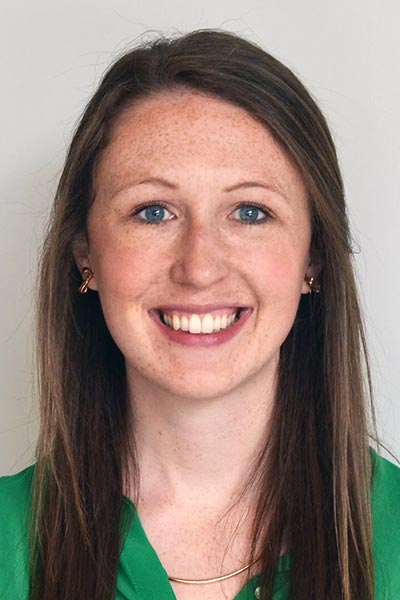2024 NextGen Stars Showcase: Kathleen Houlahan, PhD
The American Association for Cancer Research Annual Meeting 2024 will mark the 10th anniversary of the AACR’s NextGen Stars Program by welcoming in a class of 10 outstanding early-career scientists. Since 2014, the program has supported the professional advancement of graduate students, postdocs, and assistant professors by providing highly visible opportunities to present scientific findings at the Annual Meeting.
Hear from one of the newest NextGen Stars in their own words, below, and click here to read Q&As with other members of the NextGen Stars Class of 2024.

Kathleen Houlahan, PhD
AACR NextGen Stars Class of 2024
Postdoctoral Fellow
Stanford University, Stanford, California
Abstract Presentation:
NG01 – Germline-mediated immunoediting sculpts breast cancer subtypes and metastatic proclivity
Session Details:
SY02 – Understanding and Predicting Tumor Evolution
Monday, April 8, 10:15 – 11:45 a.m. PT
Ballroom 6 B, Upper Level, Convention Center
What is the subject of your research?
My research focuses on understanding how inherited DNA variants sculpt tumor development and evolution. Tumors acquire mutations within the context of their existing DNA, our inherited DNA, which may select for or against specific acquired mutations. I am interested in interrogating the mechanisms by which this inherited DNA may influence which mutations a tumor acquires and if we can use that information to make predictions on tumor mutational profiles and therapeutic vulnerabilities. There are a handful of well-characterized examples of inherited variants that have a large influence on cancer risk and the resulting tumor molecular profile but these variants are rare. I am interested in understanding the role common variants play. Currently, my work focuses on the interaction between inherited DNA variants and immune response demonstrating that this interaction sculpts breast cancer subtypes, their tumor microenvironments, and their metastatic potential.
What sparked your interest in this area of research, and why is it important?
I have always been puzzled why tumors, with the same clinical diagnosis, can molecularly look so different from one another, particularly because these molecular differences can have widespread implications on response to treatment. At present, it is unclear where this molecular variability stems from. Knowing we are all born with millions of inherited variants begs the question, does this inherited variability influence the variability we observe in tumors? Understanding the role inherited variants play in sculpting tumor molecular profiles may help explain why tumors are so molecularly different from one another. It also has important translational implications as inherited variants can be measured from blood making them minimally invasive and inexpensive potential biomarkers to improve screening and treatment.
What (or who) inspired you to apply for the NextGen Stars program?
Attending AACR in years past, I have been inspired by the broad and diverse community it brings together—researchers of all backgrounds with a shared goal. The NextGen Stars program provides a platform to engage with the AACR community which is especially important at an early career stage.
What are you looking forward to as a member of the NextGen Stars?
I am excited about the opportunity to share my work with the community of AACR and spark future collaborations. An opportunity to interact and collaborate with such an interdisciplinary community at an early career stage will have positive and long-lasting benefits moving forward.
More from the AACR Annual Meeting 2025
View a photo gallery of scenes from Chicago, continue the conversation on social media using the hashtag #AACR25, and read more coverage in AACR Annual Meeting News.

